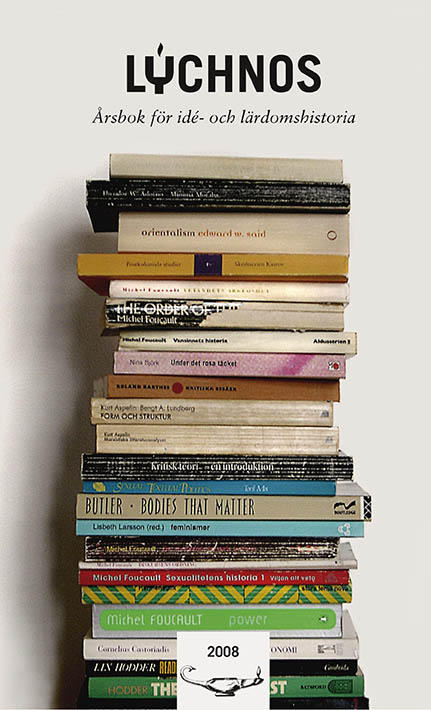Foucault, history, and the historians
The reception of Foucault within Swedish historiography.
Abstract
This article discusses the in- fluence of Michel Foucault in Swedish academia concentrating on the disciplines of history, history of ideas, and partly, ethnography. The questions asked are three: Which parts of Foucaults theories and methods have attracted Swedish historians? What patterns can be discerned when it comes to how these theories and methods have been used? Which parts of Foucault’s oeuvre have not been used? The discussion of these empirical questions is framed by a more theoretically grounded discussion concerning the role history played for Foucault in general as well as some remarks on the question of how we can profit by studying and using his thoughts.
The empirical material is mainly dissertations in the above-mentioned disciplines. In general terms the investigation shows, not surprisingly, that Foucault’s much-discussed concept of power has dominated the reception, sometimes in combination with a rather pragmatic use of his discursive method. It has also been common, however, to use just one of these elements, above all the latter, without making any distinct references to the other. Of the different forms of power discussed by Foucault, ”discipline” has played the most important role, albeit a group of studies has made productive use of his concept of bio-power. In contrast, Foucault’s more sketchy, but in English-speaking academia quite popular, concept of governmentality has attracted just a couple of historians. Many Foucault- inspired studies have a thematic affinity and deal with prisons, crime, mental hospitals, sexual and bodily practices, etcetera. In many studies Foucault’s work has been well integrated with different feminist and/or discursive theoreticans.
In general, the reception of Foucault could be described according to the formula: from hesitation and ambivalence to integration and affirmation. Foucault has perhaps been the most influental thinker in the discipline of history during the last two decades. In the subject of the history of ideas the influence has also been considerable but in ethnography clearly weaker. This said, it must be underlined that no historical scholar has dared to follow Foucault all the way in his most radical thoughts: his nominalism, his antihumanism, his re-evaluation of the subject and his, at least in some moments, militant nietzscheanism.
Downloads
Published
Issue
Section
License
This work is licensed under a Creative Commons Attribution 4.0 International License. The copyright for the work published in Lychnos remains with the authors.


